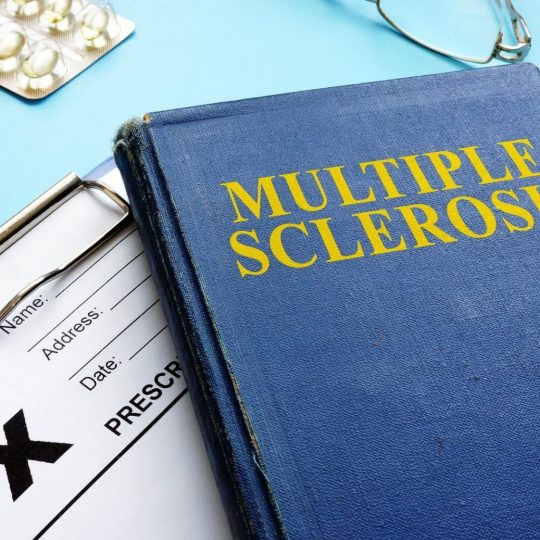#neurologist leesburg va
Explore tagged Tumblr posts
Text
Dispel Myths & Learn the Truth About Epilepsy | Neurology Associates

Epilepsy is a central nervous system disorder that arises from abnormal brain activity. This can lead to unusual behavior, epileptic seizures, and loss of awareness. Numerous factors contribute to the development of epilepsy. Learn the truth about epilepsy in an updated article from Dr. Sarbjot Dulai at Neurology Associates in Leesburg Virginia.
Learn more about Epilepsy from Neurology Associates in Lansdowne, Virginia.
0 notes
Link
Painful and progressive, Carpal Tunnel Syndrome is the most prevalent entrapment neuropathy. Studies show that it affects around 3-6% of adults in the overall population.
0 notes
Link
0 notes
Link
If someone near you suddenly faints, make sure not to panic. You may carefully follow these steps, according to a neurologist in Leesburg. ✌️
0 notes
Link
Breathing troubles during sleep can be a warning sign for sleep apnea, so consult a neurologist in Leesburg ASAP to receive a diagnosis and launch treatment.
0 notes
Link
0 notes
Text
Common Misconceptions about Multiple Sclerosis | Neurology Associates Lansdowne VA

There are common misconceptions about multiple sclerosis (MS) including one that it is a terminal disease, which it is not. While multiple sclerosis currently has no definitive cure, there are various medications, treatments, and strategies to manage its symptoms and quality of life. Schedule an appointment with a neurologist in Leesburg VA to diagnose and treat this chronic condition.
Read more at https://neurologyassociatesva.com/common-misconceptions-about-multiple-sclerosis/
0 notes
Text
Exploring the New Frontier in Alzheimer's Disease Treatment

Recent advancements in Alzheimer's disease treatment have shown promise in slowing the progression of the condition. Monoclonal antibodies such as Lecanemab and donanemab have been approved by the FDA for patients with mild Alzheimer's and mild cognitive impairment, targeting beta-amyloid plaques in the brain to prevent their clumping. Additionally, a novel approach using a molecular compound called 4-phenylbutyrate (PBA) has demonstrated the ability to reverse disease signs and improve memory function in preclinical studies. These developments represent a significant step forward in the ongoing battle against Alzheimer's disease.
Read more at Neurology Associates, located in Lansdowne Virginia.
#neurologist leesburg va#neurologist#alzheimersdisease#leesburg neurology#neurologyassociates#alzheimers
0 notes
Text
Dispelling the Myths about Parkinson’s Disease

Parkinson's disease is a progressive neurological disorder that primarily affects movement. It is characterized by tremors, stiffness, and difficulty with balance and coordination. The symptoms gradually worsen over time, and while there is no cure, treatments are available to manage the symptoms. In an updated article, Dr. Sarbjot Dulai addresses a few common myths about Parkinson’s Disease.
Read more at Neurology Associates, located in Lansdowne Virginia.
0 notes
Text
Restless Leg Syndrome: Explained by a Neurology Specialist
The exact causes of Restless Leg Syndrome (RLS) are not fully understood, but several factors are believed to contribute to its development. Genetics play a role, as RLS is often seen in families where the onset of symptoms occurs before age 40. Other contributing factors include an imbalance of dopamine, a neurotransmitter that regulates muscle movement, and iron deficiency. Certain medications, pregnancy, and chronic diseases such as diabetes and kidney failure can also trigger RLS symptoms.
RLS can cause lack of sleep and disrupt the ability to sit and watch a movie, ride in a car or on an airplane and other activities that most adults can do without concern.
Read more at Neurology Associates in Lansdowne Virginia.

0 notes
Text
Understanding Sleep Apnea and Neurology

From a neurological perspective, sleep apnea is a disorder that can have significant impacts on brain health. Obstructive sleep apnea (OSA), the most common form, occurs when the airway is blocked during sleep, leading to breathing interruptions. These interruptions can cause brain damage due to hypoxemia, or low blood oxygen levels, which affects brain regions like the hippocampus and frontal cortex, crucial for memory and executive functions. Treatment options such as CPAP therapy can help prevent these neurological consequences and may even reverse some of the damage.
Specialists like pulmonologists, sleep medicine specialists, and neurologists play a vital role in the treatment of sleep apnea, ensuring a multidisciplinary approach to this complex condition.
Read more at Neurology Associates in Lansdowne, Virginia.
1 note
·
View note
Text
A Neurologist Offers Life-Saving Advice on Detecting Early Warning Signs of Stroke
Learn the acronym, FAST, to be ready to identify the symptoms of a stroke and get assistance from 911 quickly. Visit Neurology Associates for more information.

The National Stroke Association defines stroke as a condition wherein blood flow to an area of the brain is cut off. The brain’s cells are then deprived of oxygen, causing them to die off. As a result, it can cause speech impediment, impaired memory and loss of movement in a patient. In the worst cases, a stroke can even be fatal.
However, as a neurologist may tell you, up to 80 percent of strokes can be successfully prevented. All it takes is to be aware of the warning signs of stroke and quick action to save a life or even yours.
FAST Response
The American Heart Association recommends learning what the acronym FAST stands for in the event of a stroke.
Face Drooping
People who are suffering from a stroke may appear to have a drooping face. One side may look uneven or lopsided. This is also normally accompanied by a sensation of numbness, especially on the affected side.
Arm Weakness
Weakness or numbness in one arm is a serious sign of stroke. If you or someone else has difficulty in raising both arms and if one arm is drifting downward, take immediate action.
Slurred Speech
Pay attention to slurring, especially when one is not under the influence of alcohol or other substances. Ask the person to repeat a short, simple sentence and see if they can correctly and clearly say the words.
Time to Call 911
Someone showing one or all these signs needs prompt medical attention. Even if the symptoms do go away after a while, get yourself or another person you suspect of experiencing a stroke to the nearest hospital.
Other Symptoms of Stroke
The abovementioned signs of stroke are the ones commonly reported by most patients. However, not all episodes will be the same for everybody. Other people may notice different symptoms. For instance, men and women may experience dissimilar manifestations of stroke or a patient may be suffering from a different type of stroke. Therefore, it is best to be familiar with the lesser known signs. Be on the lookout for paralysis, numbness, pins and needles sensation, loss of balance, blurred vision, involuntary eye movements, dizziness, severe headache, confusion, loss of feeling on parts of the body, difficulty swallowing, and muscle stiffness.
Knowing the early symptoms of stroke may help minimize its long-term effects. As with any medical condition, however, prevention is still the best course of action. If your risk for stroke is particularly high, it pays to be safe by visiting a neurologist from trusted institutions in Leesburg, VA such as Neurology Associates.
Sources:
Understand Stroke, Stroke.org
Tips to Detect Early Warning Signs of Stroke, MedicineNet.com
0 notes
Text
A Neurologist in Leesburg Gives an Overview of Lou Gehrig’s Disease, Also Known as ALS
If you or a loved one start observing symptoms of ALS, call for an appointment with a Leesburg neurology specialist. Visit Neurology Associates at our two offices in Dulles and Lansdowne, VA.
1 note
·
View note
